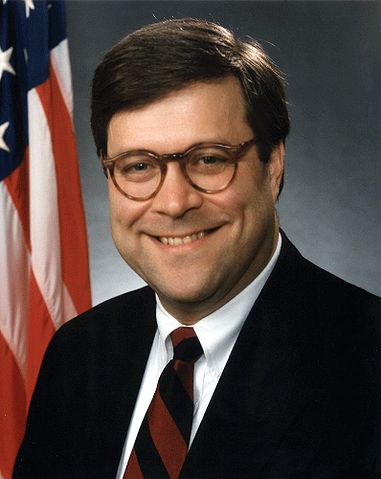Grand Jury Testimony and Classified Information May Pose Problems
WASHINGTON, D.C. (January 14, 2019) – According to his prepared testimony, Attorney General nominee William Barr will tell Congress and the American people that “I also believe it is very important that the public and Congress be informed of the results of the Special Counsel’s work. For that reason, my goal will be to provide as much transparency as I can consistent with the law.”
While some have argued that the words “consistent with the law” were inserted only to provide William Barr with an excuse for not revealing some of Special Counsel Robert Mueller‘s findings, it appears that there may be valid legal concerns which may prevent the release of some important information, suggests public interest law professor John Banzhaf.
Q3 hedge fund letters, conference, scoops etc
The federal regulations under which Mueller was appointed provide at 28 C.F.R. 600.7(a) that "a Special Counsel shall comply with the rules, regulations, procedures, practices and policies of the Department of Justice."
Then, more specifically, 28 C.F.R. § 600.9(c) mandates that "the Attorney General may determine that public release of these reports would be in the public interest, to the extent that release would COMPLY WITH APPLICABLE LEGAL RESTRICTIONS." [emphasis added]
One of those restrictions is that evidence obtained through the grand jury mechanism generally cannot be disclosed other than in an actual prosecution.
But, since it appears that most of whatever evidence Mueller may have obtained regarding Trump came to him through the grand jury, a report from Mueller from which such evidence was removed or redacted would probably could have significant holes.
In addition, some of the other evidence Mueller is likely to have - including FISA warrants, NSA intercepts, data from intelligence agencies, etc. - is likely to be classified.
Such information might, under some circumstances, be disclosed to some members of Congress who have an appropriate security clearance, but this is a far cry from releasing it to the general public.
Also, Barr does not seem to have the legal authority to declassify evidence, and, for political or other reasons, those with the proper authority might refuse to cooperate.
Thus while Barr's commitment is welcome news for those seeking to have as much information as possible made public, the result may be far from full transparency, suggests Banzhaf.
http://banzhaf.net/ jbanzhaf3ATgmail.com @profbanzhaf





